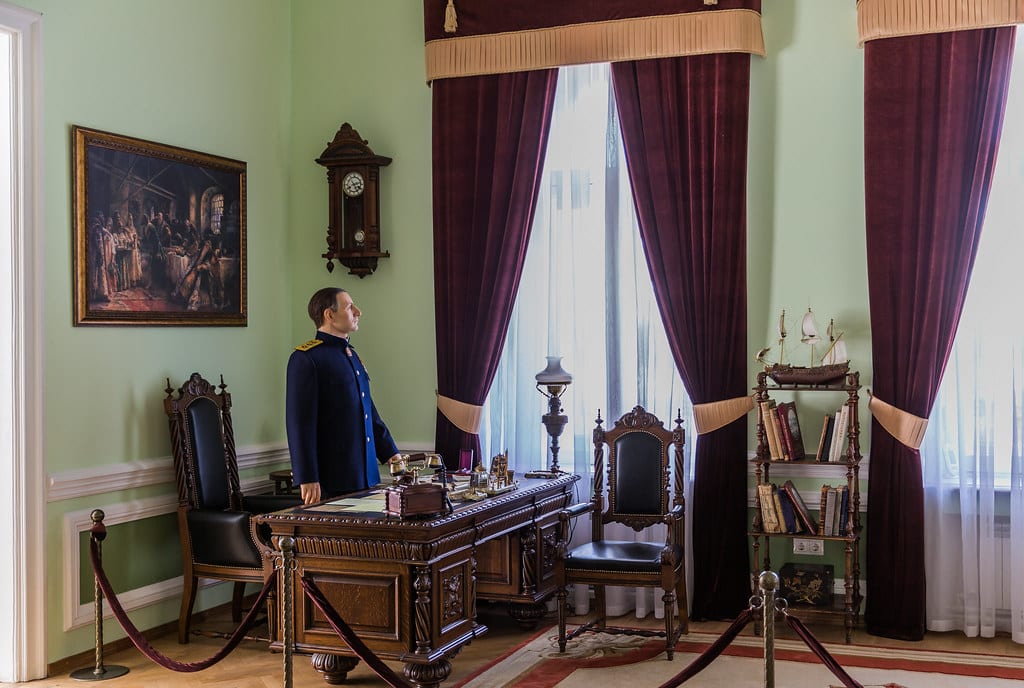Book review of Jules Verne’s “Michael Strogoff: The Courier of the Czar”
"Michael Strogoff" is a classical literature book that combines a moral story with a lot of action and an articulated plot

4Y1A8592 Omsk, Russia was originally uploaded on Flickr by Ninara and is reused here under the terms and conditions of the Attribution 2.0 Generic (CC BY 2.0) Creative Commons license.
What is the book about?
The book titled “Michael Strogoff: The Courier of the Czar”, which was written by Jules Verne, tells the story and adventures of the main character, Michael Strogoff, a hardened officer who serves in the Czar’s army.
As a result of the Tatars’ unexpected invasion, he is on a secret mission of delivering a warning message from the Czar himself, who is based in Moscow, to his brother, who is in faraway Siberia.
An ode to human courage
As you can guess, there is plenty of action in the book, and as soon as the main character enters the picture, he finds himself in the middle of situations that may not be life-threatening at first, but end up as such as the plot thickens.
Since Jules Verne’s primary purpose is not to give just an account of the battles taking place between the Russians and the Tatars, but rather to emphasize on the extraordinary, and even superhuman, strength, skills, and stamina of Michael Strogoff that emerge in the course of the conflict, the latter is constantly at the center of attention.
The character’s heroics is the main point of focus throughout the book, and it wouldn’t be an exaggeration to say that the role of other characters of the book who are in positions of higher authority, such as the Czar himself, are not highlighted as much.
By emphasizing on Captain Strogoff’s strong sense of military duty and absolute loyalty to the Czar, perhaps Verne wants to stress the crucial part that extremely capable and skilled military staff played, and continue to play, in the success of state rulers across the globe in different eras of human history.
On top of that, by adding the elements of affection between a mother and a son and love between a man and a woman, the author goes beyond military duty, which is at stake, when the above feelings come to interfere with it.
In the end, the resolution to the drama that the main character has got himself into by following orders, and finding hard to resist his own feelings as a human, at the same time, comes in the form of a near-miracle, which would be hard to believe in real life, but which matches the fast and intense plot that makes the book even more interesting to read.
Jules Verne’s unique writing skill and audience
Jules Verne has the extraordinary skill of keeping the reader riveted to the book from the beginning to the end. He is a master storyteller with an imagination that makes up for any possible historical inconsistencies. As a matter of fact, he targets readers who mostly want to read an entertaining book that contains plenty of adventure and action, rather than stick to historical detail, since they are not historians, but plain people who wish to feed their imagination and enrich their experience.
In this way, they can mentally travel to places such as Siberia, where they would never imagine of going to otherwise.
Verne’s sets a moral, pedagogical tone throughout the book, and that is the reason why “Michael Strogoff: The Courier of the Czar” is a book recommended for children.
By presenting the Tatars as savage nomads who don’t care at all about human life, and the Russians as defenders of human dignity, the author puts the reader before a dilemma, i.e. choosing to do what is good rather than what is bad.
How relevant is “Michael Strogoff” today?
Oddly enough, a classical literature book that was written back in 1876 seems to be more relevant today than in any other time in the past, as a result of the current Russia-Ukraine war/conflict.
Once again, Jules Verne has proved to be prophetic, as he managed to spot the national tensions that have existed in the area since the time that he wrote the book.
Sources and further reading:
About the Creator
thepavsalford
Hi,
I have written articles for various websites, such as Helium, Hubpages, Medium, and many more.
Currently, I work as a translator. I have studied Tourism Management at college.
See you around on Vocal Media!






Comments
There are no comments for this story
Be the first to respond and start the conversation.